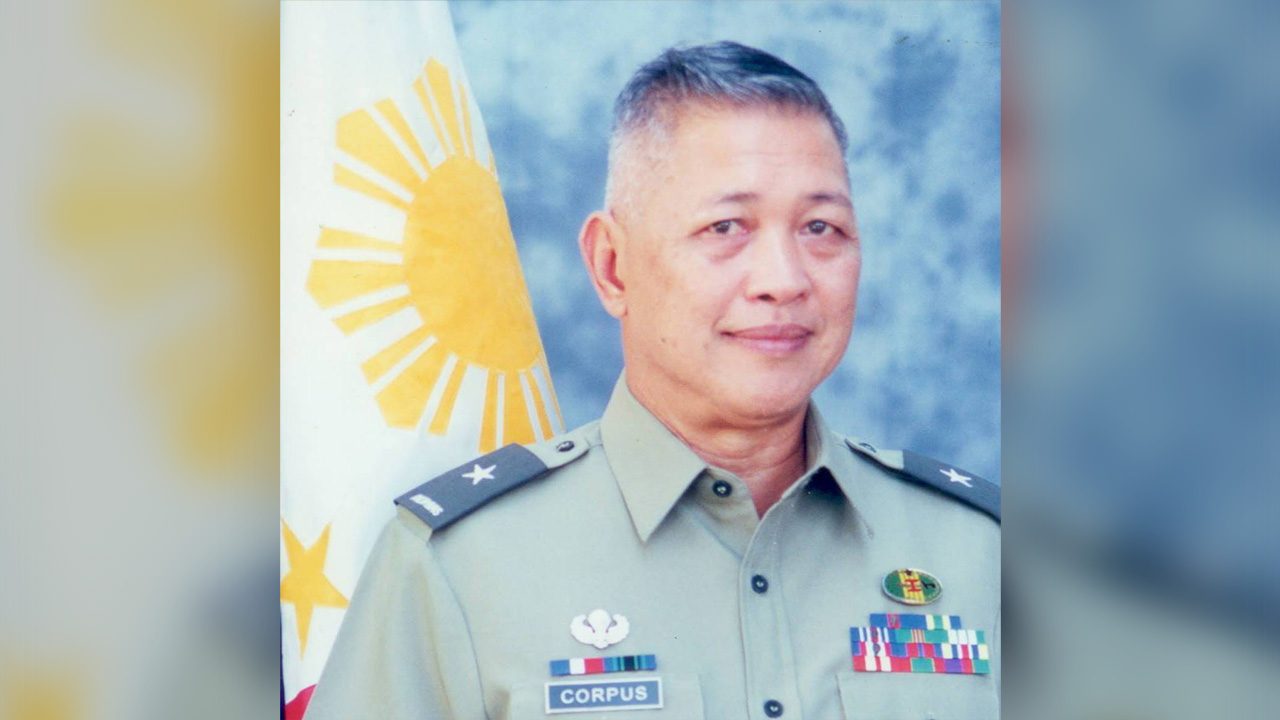SUMMARY
This is AI generated summarization, which may have errors. For context, always refer to the full article.

MANILA, Philippines – Former military intelligence chief Victor Corpus has died, his family confirmed on Thursday, April 4. He was 79.
“It is with great sorrow that we announce the untimely passing of our uncle Victor Corpus,” his niece Jennies Cruz said in a public post on Facebook on Thursday.
“We would like to request our relatives and friends to join us in prayer, for the repose of the soul of our beloved and to ask God for comfort for the bereaved family. We value your prayers among anything else,” Cruz added.
Corpus, who served as chief of the Intelligence Service of the Armed Forces of the Philippines (ISAFP) during the early years of the Gloria Arroyo administration, is best known for his defection to the Communist Party of the Philippines just three years after he graduated from the Philippine Military Academy in 1967.
He left the communist movement in 1976 and remained in a military prison until his release after the ouster of Ferdinand E. Marcos through the 1986 People Power Revolution. He was granted clemency by then-president Corazon Aquino, and was reinstated in the AFP in 1987.
Corpus’ personal journey inspired the film, Operation: Get Victor Corpus, the Rebel Soldier, directed by Pablo Santiago. The late Rudy Fernandez played the titular role in the film released in 1987.
Corpus authored Silent War, published in 1989, which provided an insider’s look into the communist movement and suggested ways to end Asia’s longest-running communist insurgency.
ISAFP and the Oakwood mutiny
Since his reinstatement in the AFP in 1987, Corpus had kept a low profile until Arroyo appointed him as ISAFP chief in 2001. He resigned from the post in 2003, following the Oakwood mutiny that rocked the Arroyo administration.
While the Arroyo administration denied that his resignation was in response to the demands of the mutineers, Corpus had said in his brief resignation letter to Arroyo: “In chess, when a queen is beleaguered, it is sometimes necessary to sacrifice a knight to save the game. I feel that the restiveness will not calm down with my continued presence.”
The mutineers – junior military officers including then-lieutenant senior grade Antonio Trillanes IV – had demanded the resignation of Arroyo, her defense and police chiefs, and Corpus in relation to their grievances over how the government was handling the military.
They blamed Corpus, in particular, for the Davao bombings in March and April 2003 that killed a total of 38 people and hurt over 200 others – either for his alleged involvement in the incidents, or for his failure to prevent it as ISAFP chief.
An investigation conducted by the Arroyo government later cleared Corpus and then-defense chief Angelo Reyes Jr. of any involvement in the bombings.
Corpus retired from the AFP in 2004, at the age of 60. While the mandatory retirement age is 56, there was a special arrangement with the Arroyo administration that allowed him to retire past that age.
Corpus also served as head of the Office of Veterans Affairs at the Philippine embassy in Washington, DC, following his appointment in 2009. – Rappler.com
Add a comment
How does this make you feel?





There are no comments yet. Add your comment to start the conversation.